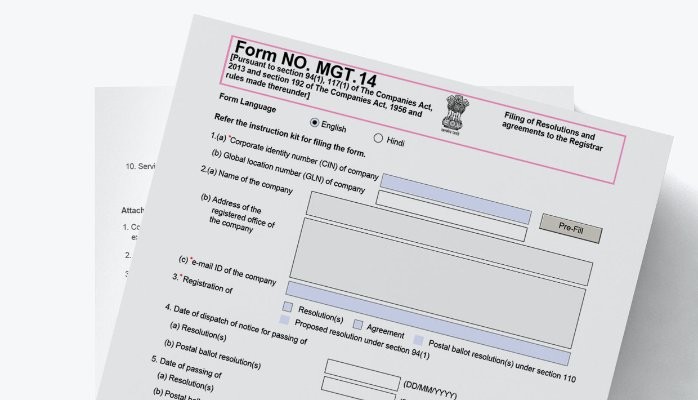Consequential provisions On the dissolution of the Appellate Authority and the Board,— (a) (i) the persons appointed as Chairman and Member of the Appellate Authority or the Board; and (ii) every other person appointed by the Central Government, Appellate Authority or the Board, and holding office as such immediately before the commencement of this Act, shall vacate his office and no such Chairman, Member or other person shall be entitled to claim any compensation for premature termination of the term of his office or of any contract of service : Provided that every officer or employee who has been, immediately before the dissolution of the Appellate Authority or the Board, appointed on deputation basis to the Appellate Authority or the Board, shall stand reverted to his parent cadre, Ministry or Department, as the case may be : Provided further that every officer or employee who has been, immediately before the dissolution of the Appellate Authority or the Board, employed on regular basis by the Appellate Authority or the Board, shall become, on and from the date of such dissolution, the officer and employee, respectively, of the Central Government with the same rights and privileges as to pension, gratuity and other like matters as would have been admissible to him if the rights in relation to such Appellate Authority or the Board had not been transferred to, and vested in, the Central Government and shall continue to do so unless and until his employment in the Central Government is duly terminated or until his remuneration, terms and conditions of employment are duly altered by that Government: Provided also that notwithstanding anything contained in the Industrial Disputes Act, 1947 (14 of 1947), or in any other law for the time being in force, the transfer of the services of any officer or other employee, employed in the Appellate Authority or the Board, to the Central Government, shall not entitle such officer or employee to any compensation under this Act or any other law for the time being in force and no such claim shall be entertained by any court, Tribunal or other authority : Provided also that where the Appellate Authority or the Board has established a provident fund, superannuation, welfare or other fund for the benefit of the officers and employees employed in the Appellate Authority or the Board, the monies relatable to the officers and employees whose services have been transferred by or under this Act to the Central Government shall, out of the monies standing, on the dissolution of the Appellate Authority or the Board, to the credit of such provident fund, superannuation, welfare or other fund, stand transferred to, and vest in, the Central Government and such monies which stand so transferred shall be dealt with by that Government in such manner as may be prescribed; [(b) On such date as may be notified by the Central Government in this behalf, any appeal preferred to the Appellate Authority or any reference made or inquiry pending to or before the Board or any proceeding of whatever nature pending before the Appellate Authority or the Board under the Sick Industrial Companies (Special Provisions) Act, 1985 (1 of 1986) shall stand abated : Provided that a company in respect of which such appeal or reference or inquiry stands abated under this clause may make reference to the National Company Law Tribunal under the Insolvency and Bankruptcy Code, 2016 within one hundred and eighty days from the commencement of the Insolvency and Bankruptcy Code, 2016 in accordance with the provisions of the Insolvency and Bankruptcy Code, 2016 : Provided further that no fees shall be payable for making such reference under Insolvency and Bankruptcy Code, 2016 by a company whose appeal or reference or inquiry stands abated under this clause:] [Provided also that any scheme sanctioned under sub-section (4) or any scheme under implementation under sub-section (12) of section 18 of the Sick Industrial Companies (Special Provisions) Act, 1985 shall be deemed to be an approved resolution plan under sub-section (1) of section 31 of the Insolvency and Bankruptcy Code, 2016 and the same shall be dealt with, in accordance with the provisions of Part II of the said Code: Provided also that in case, the statutory period within which an appeal was allowed under the Sick Industrial Companies (Special Provisions) Act, 1985 against an order of the Board had not expired as on the date of notification of this Act, an appeal against any such deemed approved resolution plan may be preferred by any person before National Company Law Appellate Tribunal within ninety days from the date of publication of this order.] (c) the balance of all monies (including any fee) received by, or advanced to the Appellate Authority or the Board, as the case may be, and not spent by it before the commencement of this Act shall, on the commencement of this Act, stand transferred to, and vest in, the Central Government and shall be utilised for the purposes of clauses (e) and (f); (d) all property of whatever kind owned by, or vested in, the Appellate Authority or the Board, as the case may be, and not spent by it before the commencement of this Act shall, on the commencement of this Act, stand transferred to, and shall vest in the Central Government; (e) all liabilities and obligations of whatever kind incurred by the Appellate Authority or the Board and subsisting immediately before the commencement of this Act shall, on and from the commencement of this Act, be deemed to be the liabilities or obligations, as the case may be, of the Central Government; and any proceeding or cause of action, pending or existing immediately before the commencement of this Act by or against the Appellate Authority or the Board in relation to such liability or obligation may, as from the commencement of this Act, be continued or enforced by



